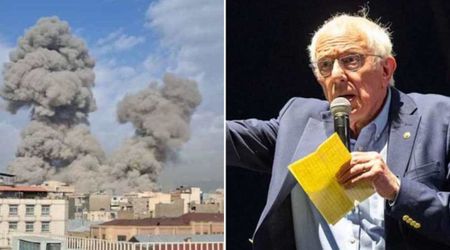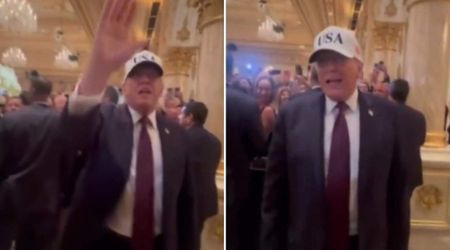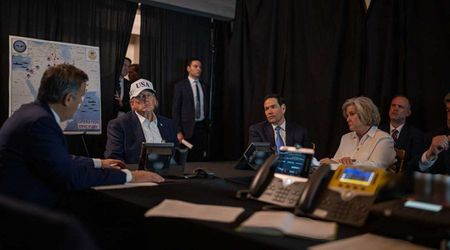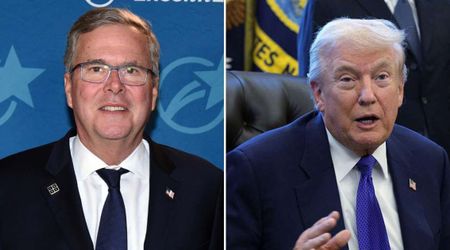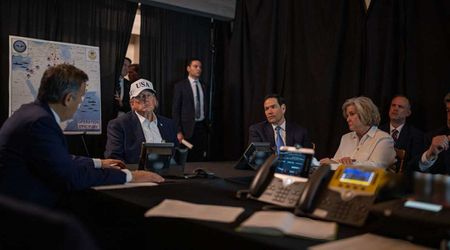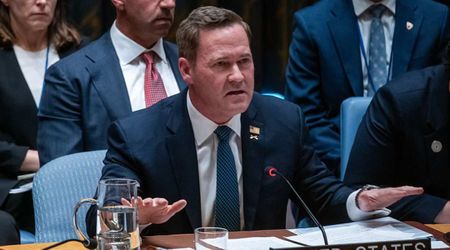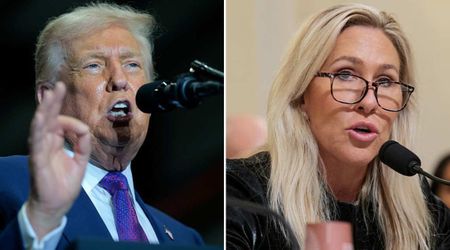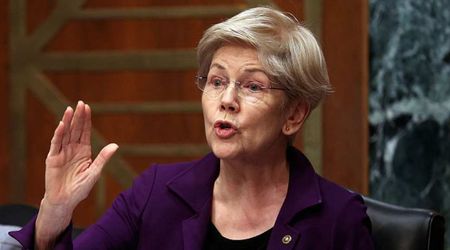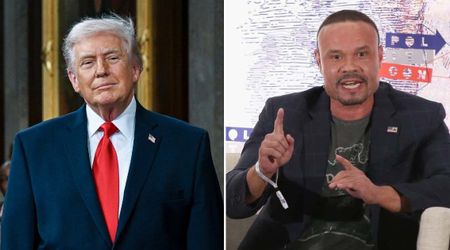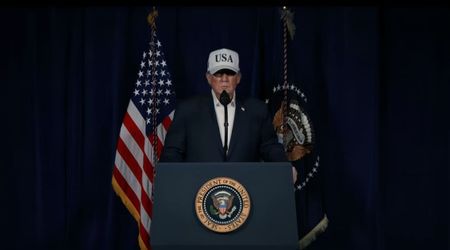Trump hush money trial: Jury selection, main players and all you need to know about the landmark case
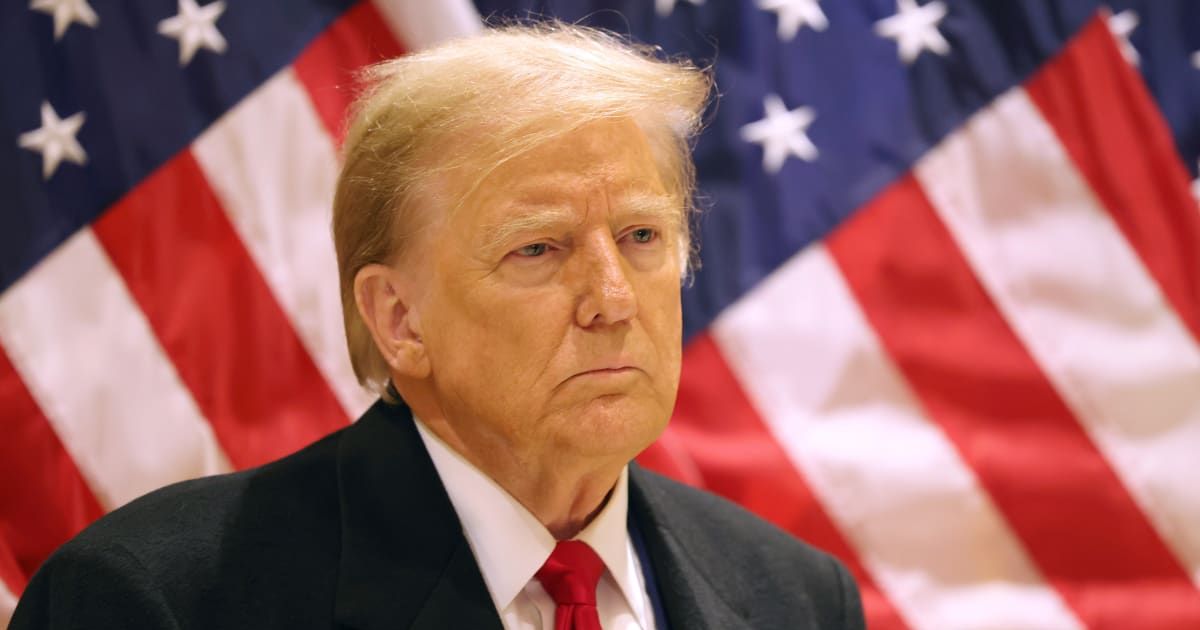
Everything you need to know about Donald Trump's hush money trial

During a presidential campaign in which he is the presumed Republican nominee, Donald Trump will become the first former president to go on trial in a criminal case next week. The trial is scheduled to run six to eight weeks, with jury selection starting on Monday, April 15, in New York City. To keep information of an alleged extramarital affair private, Trump is charged with 34 counts of manipulating business records. Here are important things you need to know about the landmark case.
1. Anticipated duration of jury selection

The jury selection process should take one to two weeks. Prosecutors and lawyers for Donald Trump will begin their efforts on Monday, April 15, to reduce the number of possible jurors from hundreds to 12 and six alternates. Each jury will respond to 42 questions meant to ascertain their ability to remain objective on the divisive former president. Among the questions are ones about their news sources and whether or not they have ever gone to a Trump rally or protest. Because of security concerns, the jurors will be anonymous, meaning that the public will not know who they are.
2. Charges against Donald Trump

Alvin Bragg, the district attorney for Manhattan, charged Trump with 34 counts of falsifying business records in the first degree. If found guilty, Trump could spend a maximum of four years in prison.
3. Allegations from prosecutors

During the 2016 presidential election, prosecutors allege that Trump "repeatedly and fraudulently falsified New York business records to conceal criminal conduct that hid damaging information from the voting public." The main accusations in the case are those of many sex scandals, which the prosecution claims Trump attempted to bury with the assistance of his lawyer Michael Cohen and high-ranking officials overseeing the National Enquirer. Towards the end of the election, Cohen gave adult film star Stormy Daniels $130,000 so she wouldn't talk about her allegations that she had a sexual encounter with Trump in 2006. The claim has been refuted by Trump.
4. Donald Trump maintains he has done nothing wrong

While acknowledging that he had reimbursed Michael Cohen, Trump maintained that he had done nothing wrong and that he was unaware of the details of Cohen's activities. Trump's lawyers will probably try to discredit Cohen on the witness stand by portraying him as a liar who despises the former president and whose evidence is unreliable. It is anticipated that they will also be forceful in their interactions with Daniels, concentrating on her remarks that make fun of Trump in an attempt to paint her as biased and untrustworthy.
5. Key witnesses for the prosecution

Both Stormy Daniels and Michael Cohen, who claims that Trump gave him the order to pay Daniels, are anticipated to be key witnesses. Despite the efforts of Trump's lawyers to prevent them from testifying, Judge Juan Merchan allowed both of them to do so. Keith Davidson, Daniels' former lawyer, is expected to testify on his talks over the payment, according to a source with direct knowledge of the case. Karen McDougal, a former Playboy model who claimed to have had an affair with Trump—a charge he disputes—is also anticipated to testify. Prosecutors said the Enquirer paid her money to be silent about her claims, as part of a 'catch and kill' operation to prevent other crises involving Trump.
6. Key witnesses for Donald Trump

According to court documents, Trump will bring in Bradley A Smith, the former head of the Federal Election Commission, to testify about the FEC's operations, the laws it is tasked with upholding, and definitions and terminology relevant to the case. As Trump had intended, the court decided he would not be permitted to comment on whether or not his activities broke election law. Trump said on Friday that he will 'absolutely' testify in the trial. Trump is the only person who can directly refute some of Cohen's allegations and doesn't need to take the stand.
7. Everyday attendance for Donald Trump in court

Trump must be in court every day to assist in his defense since the DA's case is criminal, unlike the New York civil fraud and E Jean Carroll defamation cases. Wednesdays are off for the trial, but on the other four days of the court week, Trump must appear in court. It is anticipated that the trial days will run from 9.30 am to 4.30 pm. Trump has hinted that after appearing in court during the day, he would hold campaign rallies at night.
8. Number of jurors' votes needed for conviction or acquittal

All 12 jurors must agree on whether Trump is guilty or not of a particular charge for the jury to provide a verdict.

